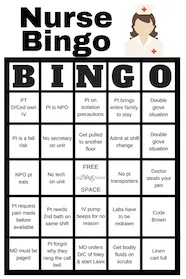Nurses are responsible for ensuring that patients receive the correct medication at the correct dosage. This is a huge responsibility, and nurses must take the necessary steps to prevent medication errors. In this blog post, we will explore the factors on how to prevent medication errors in nursing.
The most typical medication administration error includes wrong dosages of medications, potency or frequency of the drug, and even incomplete administration. Recent national research shows that the rate of medication errors is common in hospitals that cause many deaths.
- 9 Simple Steps to Reduce Medication Errors
- Ensure the Six Rights of Medication Administration Are Followed
- Follow Proper Medication Reconciliation Procedures
- Document Everything
- Only Complete the Process With Your Full Attention
- Ensure Proper Storage of Medications for Proper Effectiveness
- Question if Unsure
- Learn Your Institution’s Medication Administration Policies, Regulations, and Guidelines
- Consider Having a Drug Guide Available at All Times
- Record More ‘Near Miss’ Medication Errors
- Final Thoughts
- FAQs
- More Resources:
9 Simple Steps to Reduce Medication Errors
All nurses need to be familiar with various preventative and reduction strategies that can help them reduce the risk of medication errors. These 9 strategies can help you to reduce the risk of medication errors.
Ensure the Six Rights of Medication Administration Are Followed
The six rights of medication administration include:
- Right Patient
- Right Drug
- Right Dose
- Right Route
- Right Time
- Right Documentation
1. The Right Patient: One way to prevent giving the wrong medication to a patient is by using two forms of identification. This can include asking the patient their name and date of birth or using a wristband with this information.
2. The Right Medication: When retrieving medication from the Pyxis machine, be sure to check that the drug and strength are correct. Also, make sure that you are getting the correct amount of medication.
3. The Right Dose: Proper medication labeling verified by two health care professionals is very important and can help you to ensure there is no mistake or error.
4. The Right Time: Medication should be given at the prescribed time. If a patient is scheduled for a medication to be given every six hours, but it is currently only five hours since the last dose, do not give the patient the medication.
5. The Right Route: The route of administration should be verified before giving the medication. This includes checking that the intravenous line is in the correct vein and that the enteral feeding tube is in the correct placement.
6. The Right Documentation: Record everything. Patient’s allergies, the medications that were given, the dosages, and the times that the medications were given. Assess and evaluate the patient and make sure they are responding correctly to the medication. If not, document.
Follow Proper Medication Reconciliation Procedures
When a patient is admitted to the hospital, healthcare workers should do complete medication reconciliation. This includes reviewing the oral medications that the patient was taking at home and comparing them to the medications that the hospital has on file. If there are any differences, the nurse should contact the prescribing physician to clarify any orders.
In addition, when a patient is discharged from the hospital, a nurse should again do complete medication reconciliation. This includes providing the patient with a list of all their current medications and explaining how and when to take them. Doing this will help the patient to avoid taking inappropriate medication.
Document Everything
It is important to document everything when it comes to medication administration. This includes documenting the patient’s allergies, the medications that were given, the dosages, and the times that the medications were given.
In addition, if there are any changes in a patient’s condition, this should be documented as well. Accurate documentation will help the doctors understand the condition of the patient. Using the electronic health record method is recommended. Because legible documentation can help you in medication error prevention. Documentation is important in nursing as it helps to ensure routines are followed and fosters communication among staff. Documentation in nursing is crucial for patients’ continuity of care, determining clinical reimbursement, avoiding malpractice, and facilitating communication between rotating providers.
Only Complete the Process With Your Full Attention
When administering medication to a patient, you mustn’t be distracted. This means that you should not be on your phone, talking to other staff members, or doing anything else that takes away from your full attention and may cause an incidence of medication errors.
If you need to take a phone call or step away from the patient for any reason, you should ask another nurse to take over the process. You should also ensure you are not interrupted while completing the process. If interrupted, you should start the process from the beginning.
Ensure Proper Storage of Medications for Proper Effectiveness
When it comes to medication storage, there are a few things you need to keep in mind to ensure its proper efficacy.
First and foremost, you must ensure the medication dose is stored in a cool, dry place. Not only does this prevent spoilage and degradation of the active ingredients, but it also helps prevent curious little fingers (or paws) from getting into them.
Another important consideration is keeping medications out of direct sunlight. While some medications require refrigeration, most do not, and thus exposure to sunlight can cause them to break down more quickly.
If possible, store your medications in a dark cupboard or drawer to prolong their shelf life. Also, check if the drug has not crossed its expiry date. In addition, all medications should be stored in their original containers.
Question if Unsure
If you are ever unsure about anything related to safe medication administration, it is essential to ask questions. This includes asking the prescribing physician if there are any questions about the orders and asking about any high-alert medications.
You should also ask questions of your co-workers and superiors. If you are still unsure, do not hesitate to call the pharmacy for clarification.
The most important thing is to ensure that you give the patient the medication as safely and effectively as possible.
Learn Your Institution’s Medication Administration Policies, Regulations, and Guidelines
Each institution has its policies, regulations, and guidelines regarding medication administration. It would help if you learned these before working at the institution.
You should also be sure to keep up to date on any changes made to these policies, regulations, and guidelines.
Some things that you should have knowledge of include the types of medications that can be given at the institution, the storage requirements for medications, and the process for documenting medication administration.
Consider Having a Drug Guide Available at All Times
Having a drug guide available at all times can be very helpful. This is especially true if you are new to working with medications or if you are working in a fast-paced environment.
A drug guide can help you quickly look up information about the medications you are administering.
Some of the things you can find in a drug guide include the drug name, the dosage, the route of administration, and any special instructions.
Record More ‘Near Miss’ Medication Errors
Recording more ‘near miss’ medication errors can help prevent future errors. A near miss is that almost occurred but was caught before it resulted in harm to the patient.
For example, if you are about to give a patient the wrong medication but catch yourself before doing so, this would be considered a near miss. Recording these medical errors in hospitals can help to identify trends and potential problem areas.
Final Thoughts
Medication errors and medical errors are significant problems in the healthcare setting. They can result in serious harm to patients. However, there are many things that healthcare providers can do to prevent these errors.
Some of the most important things include paying attention to detail, asking questions if unsure, and knowing your institution’s policies and guidelines. In addition, having a drug guide available and recording more ‘near miss’ errors can also be helpful. By following these strategies, nurses can help prevent medication errors and keep their patients safe.
FAQs
What Is the Best Way for Nurses to Prevent Medication Errors?
There are many ways that healthcare professionals can prevent medication errors. Still, one of the most important is ensuring they have a thorough understanding of the medications they are administering. Nurses should always read the drug labels on medication bottles and double-check dosages before giving medications to patients. They should also be aware of potential drug interactions and be sure to clarify any questions they have with pharmacy staff or other providers.
What Should a Nurse Do if She Makes a Medication Error?
If a nurse makes a medication error, the first thing she should do is to take immediate corrective measures. This may involve switching the patient to a different medication or dosage or simply stopping the administration of the medication altogether. The next step is to inform the patient’s doctor of the mistake. It is essential, to be honest, and upfront about what happened, as this will help the doctor make decisions about future care. Finally, it is important to document the error in the patient’s medical record. This will help to ensure that future mistakes are avoided.
Why Is It Important to Prevent Medication Errors?
Patient safety is of the utmost importance in all aspects of healthcare, and preventing medication errors is a vital part of that. Medication errors can result in severe morbidity and even mortality, so they must be prevented whenever possible. It can also negatively affect the reputation of the hospital or institution where it occurred and may cause financial implications.
What Are the Common Causes of Medication Errors?
There are many potential causes of medication errors, but some of the most common include workload, similar drug names, interruptions, lack of support from nursing staff, and insufficient time to counsel patients. The workload can majorly contribute to medication errors, as it can lead to mistakes due to fatigue or rushed decision-making. Similar drug names can also lead to mistakes, as different medications with similar names can easily be confused.
Interruptions can also cause errors, breaking a nurse’s concentration or leading to missed information. Lack of support staff can also lead to errors, as nurses may have to take on multiple roles and may not have enough time for proper documentation. Lastly, insufficient time to counsel patients can also lead to errors, as nurses may not have enough time to explain the medication’s potential risks and side effects.
More Resources:
- The Importance of Medication Adherence
- Meaningful Use and the Continuity of Care Document
- Is Medication Timing More Important Than Good Patient Care?
Download Nurse Bingo Today!

Liven up any shift with a fun game of bingo. See who can fill a row first!
Fill a whole card and lose grip with reality.
Your privacy is protected. We will never spam you.





